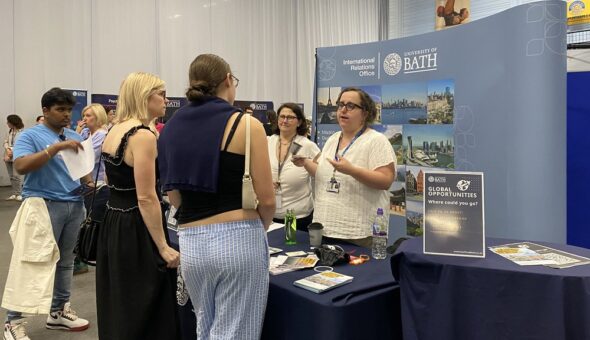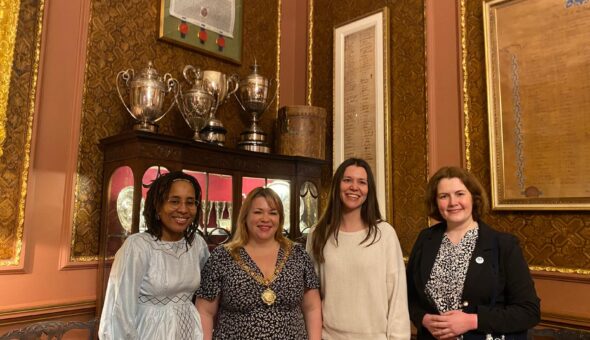This blog post is contributed by Dr David Liptrot from the Department of Chemistry at Bath.
I was delighted to host Prof. Philip Power’s second visit as a Bath Global Chair in the Department of Chemistry from 6 September. Phil’s second visit allowed him to continue his programme of mentorship and engagement with postdocs and graduate students in the department. We are excited to announce that two graduate students from Bath are now planning visits to UC Davis, Phil’s home institution, next year to continue our exciting joint research programme.
The centrepiece of Phil’s visit was the provision of a keynote talk at the inaugural Bath Organometallic Synthesis Symposium on 7 September. The symposium was a great success, in no small part due to Phil’s profile, and attracted around 70 attendees from around the region. Alongside Phil’s excellent talk entitled Highly Sterically-Crowded Subvalent Group 14 Compounds: Unexpected Structures and High Reactivity with Small Molecules, I was delighted to see contributions from a range of early career researchers, graduate students, postdoctoral researchers and established academics. These included researchers from international partners including the University of Regensburg, Germany and Graz University of Technology, Austria. I was amazed at the quality of the talks, pleased by the excellent attendance and am sure that this event will run again next year, growing Bath’s profile in organometallic synthesis and hopefully forming the basis of a network in this exciting research area.
Alongside the talks, breakout coffee sessions and a wine reception were an excellent opportunity to network, and let off some steam after the intensive scientific discussion. I’d like to thank the International Relations Office for sponsoring these events and facilitating Phil’s attendance.
Talks included:
Polynuclear Metal Complexes – The Good and the Bad of Cooperativity
Dr Robert Kretschmer (University of Regensburg, Germany)
Introducing Cyclobutadiene to the Rare Earth Metals
Dr Benjamin M. Day (University of Sussex)
Nucleophilic aluminium: Synthesis, structural and reaction chemistry of an aluminyl anion
Dr Jamie Hicks (University of Oxford)
A Molecular Construction Kit for Metalloid Tin Clusters: From organotin hydrides to polyhedral structures
Beate G. Steller (Graz University of Technology, Austria)
Heterobimetallic reductive homologation of carbon monoxide and carbon chain-growth
Richard Y. Kong (Imperial College London)
Small molecule activation and catalysis using low-coordinate complexes
Prof Deborah L. Kays (University of Nottingham, UK)
Highly Sterically-Crowded Subvalent Group 14 Compounds: Unexpected Structures and High Reactivity with Small Molecules
Prof Philip P. Power (University of California, Davis USA; Global Chair, University of Bath, UK)
Professor Philip Power is Distinguished Professor of Inorganic Chemistry at the University of California, Davis, and a 2017/2018 Global Chair at Bath.
Respond


